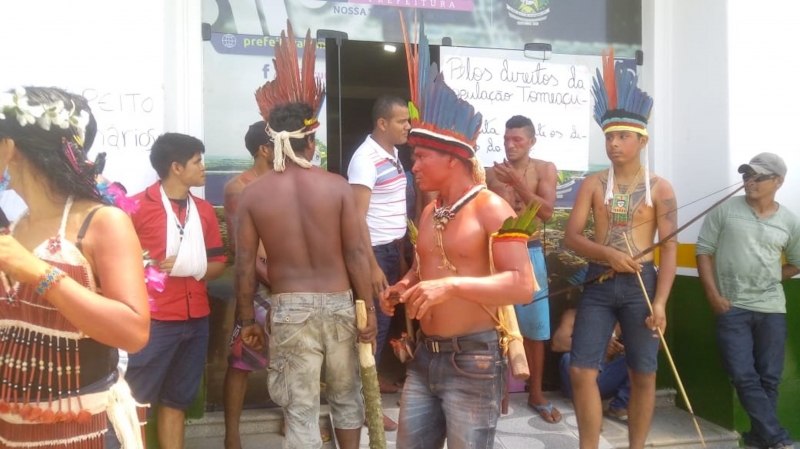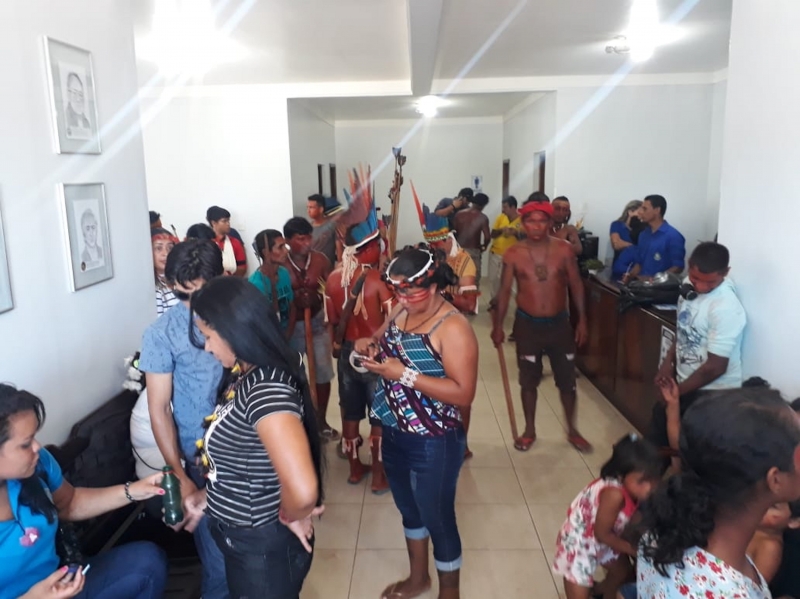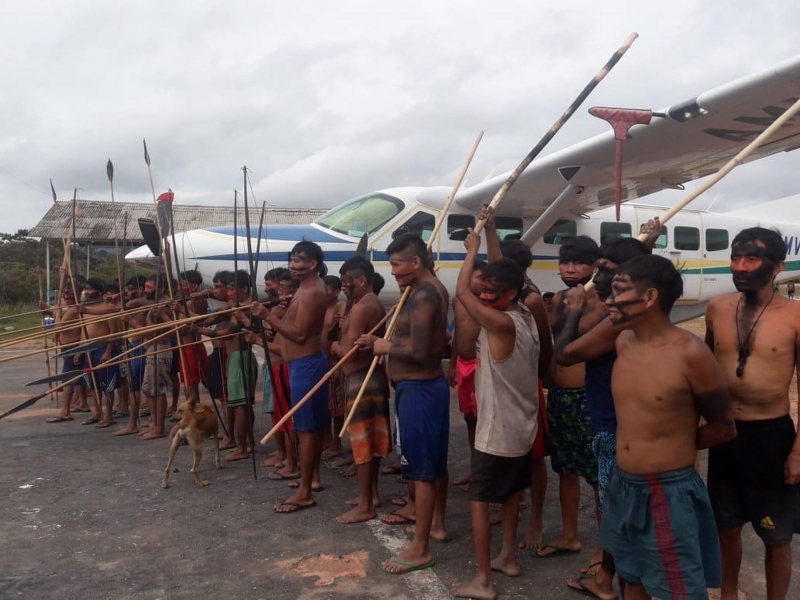We report two combative actions that different indigenous peoples are making in the north region of Brazil, in the reinforest area, demanding basic health conditions and other economic demands, while facing against the genocide policy of Brazilian state.
Pará: Indigenous people occupy the city hall office
Since September 10, a group of indigenous people from ten ethnic groups, mainly Tembé, are occupying the main office of the city hall of Tomé-Açu, located about 200 kilometers from the capital of Pará. The occupation began after the dismissal of workers for indigenous health and education in several villages.
In addition to demanding improvements in the conditions of health facilities and schools, indigenous people also require improvements in the roads that provide access to the villages, the interruption and readmission of indigenous health and education workers dismissed and the payment of delayed wages for the workers who have not yet been dismissed. Most of them have not received salaries since July this year.


Roraima: Indigenous peoples seize aircrafts and state agents and demand basic healthcare
On September 16, many indigenous peoples from different Yanomami communities of Surucuru region, in Alto Alegre region (north of Roraima) have seized three aircrafts and held state functionaries from the Special Secretary of Indigenous Health (Sesai). This action was an answer to the ongoing genocide process that was recently expressed in the death of two children by lack of medical treatment, while afflicted by malaria.
The combative action was carried out by the indigenous peoples with their traditional weapons (bows, arrows and spears) and wearing the typical war paintings of their communities. There are no reports of injuries. The Indians, in addition to rejecting the genocide, are taking action to demand the resignation of the current coordinator of the Yanomami Special Indigenous Sanitary District, Rousicler de Jesus Oliveira, for his lack of dialogue with the Yanomami communities and the failure on medical care.
Since the 1980s, the Yanomami people have been subjected to a policy of genocide on the part of the old bourgeois-landlord state, lackey of imperialism. The genocidal policy of theft and expulsion of the Yanomami from their traditional lands is mainly directed by the landlord Romero Jucá, and well-known figure of the old state, who operates in Roraima.
In addition, the so-called "anthropological missions" financed by imperialism within the lands of these peoples are notorious for the purpose of exploiting them since the late 1970s.

